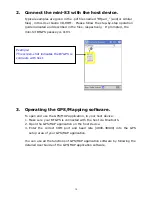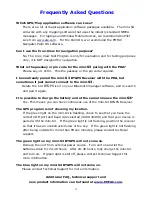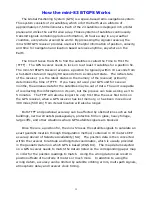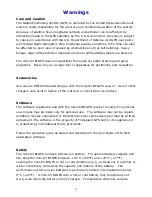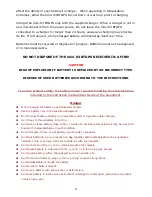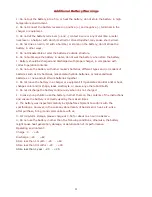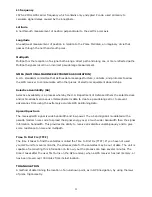
20
affect the ability of your battery to charge. When operating in temperature
extremes, allow the mini-S3 BTGPS to cool down or warm up prior to charging.
Charge the mini-S3 BTGPS only with the supplied charger. When a charger is not in
use, disconnect it from the power source. Do not leave the mini-S3 BTGPS
connected to a charger for longer than 24 hours; excessive charging may shorten
its life. If left unused, a fully charged battery will discharge itself over time.
Batteries must be recycled or disposed of properly. Batteries must not be disposed
of in municipal waste.
DO NOT DISPOSE OF THE mini-S3 BTGPS RECEIVER IN A FIRE!
CAUTION
RISK OF EXPLOSION IF BATTERY IS REPLACED BY AN INCORRECT TYPE.
DISPOSE OF USED BATTERIES ACCORDING TO THE INSTRUCTIONS.
To assure product safety, the battery maker requests following the statements be
included in the instruction manual/User Guide of the equipment.
Danger
When charging the battery, use dedicated chargers.
Use the battery only in the specified equipment.
Don’t connect battery directly to an electrical outlet or cigarette lighter charger.
Don’t heat or throw battery into a fire.
Don’t use or leave battery close to fire or inside of a car where temperatures may be over 60
°
C.
Also don’t charge/discharge in such condition.
Don’t immerse, throw, or wet battery in/with water / seawater.
Don’t put batteries in your pockets or a bag together with metal objects such as necklaces,
hairpins, coins, or screws. Don’t store batteries with such objects.
Don’t short circuit the (+) and (-) terminals with other metals.
Don’t place battery in a device with the (+) and (-) in the wrong way around.
Don’t pierce battery with a sharp object such as a needle, etc.
Don’t hit with a hammer, step on, throw, or drop to cause strong shock.
Don’t disassemble or modify the battery.
Don’t solder a battery directly.
Don’t use a battery with serious scar or deformation.
Don’t use battery in a corrosive environment (damage from salt water, sea water, acid, alkali,
corrosion gas, etc.).





